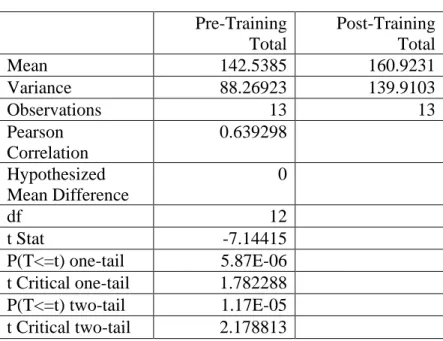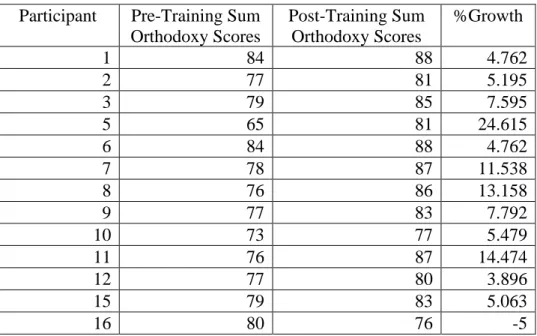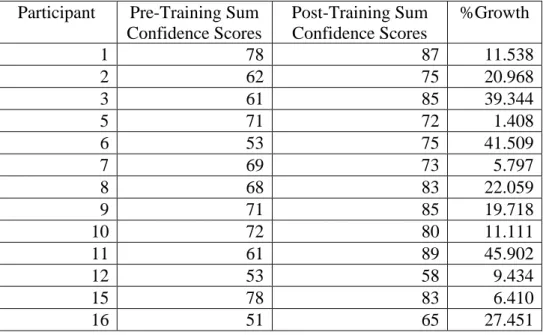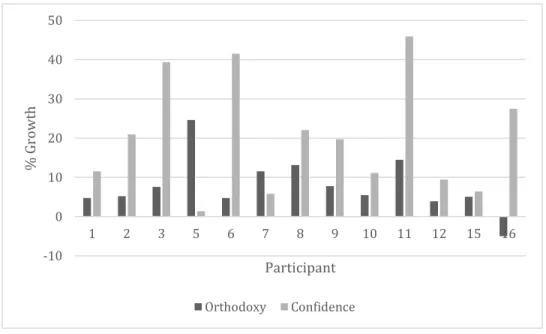To my beloved and faithful wife, the church of the Lord Jesus and the glory of God. The work of this project is possible thanks to those whom God has given to encourage and support me in my education and ministry. God has also blessed me with a church family that serves me far more than I deserve.
It is truly a joy to gather with God's people every Sunday knowing that we stand in unity in faith and purpose. May this project serve to grow their love for the Lord and the confidence they have to make Him known to a dark world. Fourth, to my patient and gracious wife, there are not enough words to express my gratitude.
I pray that the Lord will give me strength and holiness to lead our family on his path, that my speech will be gracious and my love steadfast. I would also like to thank the faculty, staff and administration of SBTS for the discipleship bestowed upon me.
INTRODUCTION
Each of the four ministries (kindergarten, children, students, CC) is heading in the same direction. Chapter two demonstrates that the New Testament's use of apologia grounds the discipline of apologetics in the preaching of the gospel. The content of the defense is to give "a reason for the hope" that is in the Christian, λόγον περὶ τῆς ἐν ὑμῖν ἐλπίδος (v. 15).
The content of the defense is prescribed by the phrase "the hope that is in you." It is this gospel hope (ἐλπίδος τοῦ εὐαγγελίου) that Paul wants his readers in Colossians to persevere in (v. 1:23). He must depart from the hope of the gospel, the mighty action of God, whose defeat over sin was declared in Christ's resurrection (v. 12).
Paul explains elements of the gospel to the Colossians with the express purpose of guarding them from false teachings. Paul shows that the way to guard against false teaching is to be grounded in the truth of the gospel. The apologist can then challenge his suppression of the truth and explain his sin and the gospel to the unbeliever.
Therefore, certain aspects of apologetics training can be adapted to the specific challenges of the target context.
The second goal is to teach students the nature and purpose of
The goals of this plan were designed to follow the logic of the apologetics education curriculum.6. The first goal of the strategic ministry plan is to communicate the need for students to be equipped in missional apologetics. This involves both the campus ministry director and campus ministry students who embrace the plan's mission and vision.
Once the campus ministry director has embraced the vision, he should seek to inspire his students to desire to engage their campus in the gospel (goal 1). As students share the burden of engaging their peers in the gospel, meeting times should be established so that the leader/pastor from the local church can connect with the students in the campus ministry (goals 2-3). After introductions, students should be given a preview of apologetics training to help them see the need for training (goal 4).
Students should be taught how to use different arguments and evidence to compare biblical and non-biblical worldviews according to two theories of truth (objective 4). As the following sessions take place, special attention should be paid to ensure that the following sessions train students to include other worldviews according to this integrative method (objective 5). The fourth goal is to prepare for the particular ideological challenges associated with the college context (goal 1).
The fourth goal is to prepare for the particular ideological challenges associated with the college’s context (objective 1). This can be done by inquiring of
The fifth goal is to lead students in a missional apologetics training model that will encourage regular engagements with nonbelievers. The developed
The curriculum's emphasis on application directs this training toward achieving the mission of students who engage their campuses in missionary apologetics. The ultimate goal is to appoint a student apologetics ministry leader to lead the group in further missional apologetics ministry.
The final goal is to appoint an apologetics ministry student leader to lead the group in further missional apologetics ministry. After the students have been
This oral period—the time between Christ's life and the writing of the Gospels—has been the target of form critics for decades. With such a lack of knowledge, it only takes a few statistics to cast doubt on NT's reliability. BBC students were equipped to engage their campuses in the gospel by teaching an apologetics training curriculum.
The implementation of the curriculum began on May 23 and ended on July 25. These students were required to take the BAA before class began. They were allowed into the study because they were able to go through the session 1 review at the beginning of the lesson.
At the end of the session, the students were given the challenge of applying to meditate on the phrase, "the fear of the Lord is the beginning of wisdom." The implementation of the project took place as described over seventeen weeks. Each of the three project objectives is assessed below according to the standards set out in chapter 1.
The CC students at BBC are equipped in a classroom environment by teaching the apologetics curriculum. Another weakness is that some of the questions in the survey may have been vague to the participants. The following is an example of the apologetics training developed to equip undergraduate students in missional apologetics.
Jesus affirmed the authority of the Old Testament (Luke 24:27) and commissioned his apostles to be authoritative witnesses for him, thereby assuring the authority of the NT scriptures (Acts 1:8). TRAIN (Teach, Research, Apply, Investigate, Navigate): You have learned how to defend the reliability of Jesus' eyewitnesses.
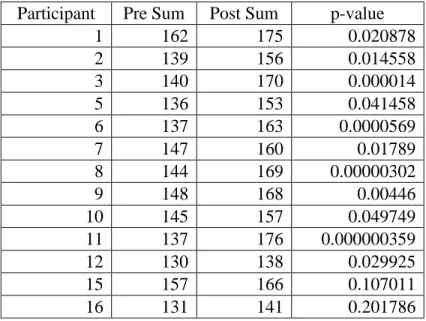
BAA LIKERT KEY
PERCENTAGE GROWTH
Socrates or Christ: The Reformation of Christian Apologetics. On the Foundations of Christian Scholarship: Essays in Van Til's Perspective. The Coherence Theory of Truth.” Philosophical Studies: An International Journal for Philosophy in the Analytic Tradition 34, no. What is the Mission of the Church: Making Sense of Social Justice, Shalom, and the Great Commission.
A Careful and Rigorous Examination of the Contemporary Prevailing Concepts of the Free Will Supposed to be Essential to Moral Agency, Virtue and Vice, Reward and Punishment, Praise and Blame." In The Works of Jonathan Edwards. Jesus Before the Gospels: How the Earliest Christians Remembered, Changed, and Invented Their Stories of the Savior Worship in Spirit and in Truth: A Refreshing Study of the Principles and Practice of Biblical Worship.
The Epistle of the Apostle Paul to the Colossians, exposition of the Old and New Testaments. Do you love God with all your mind : the role of reason in the life of the soul. The mission of God and the local church.” In pursuing the mission of God in church planting.
In chapter 2, the exegesis of 1 Peter 3:15 provides biblical principles that define the concept and practice of apologetics.
